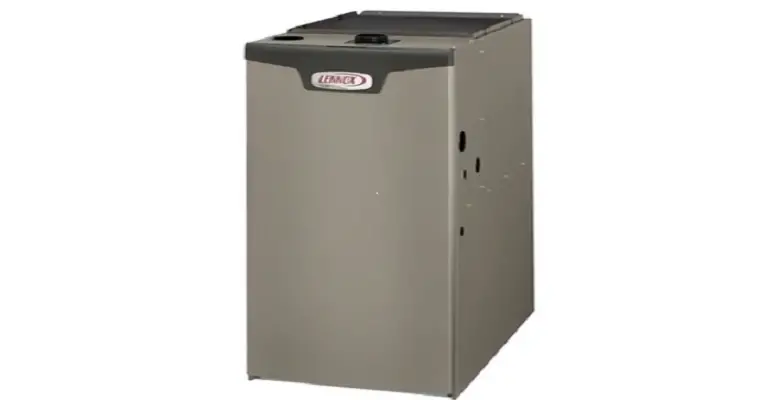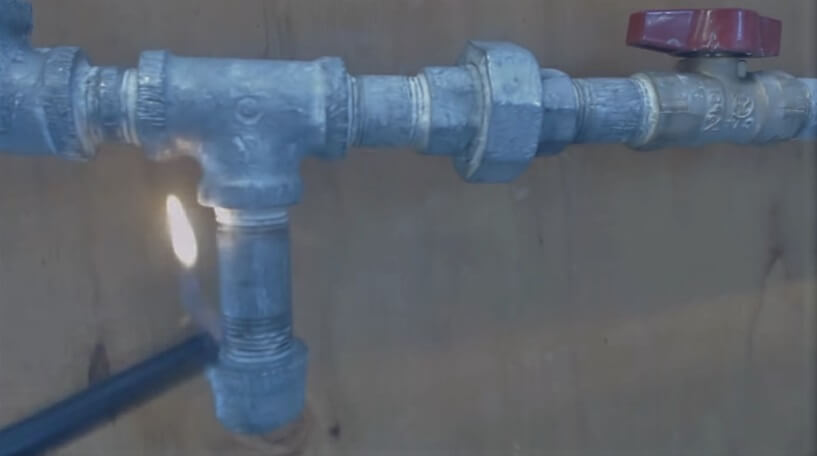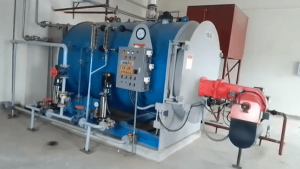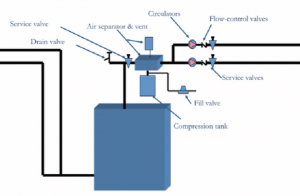Disclosure: As an Amazon Associate, I earn from qualifying purchases. Learn more
Last Updated on December 1, 2022 by Rhyes Frank
A boiler gas leak is a very serious hazard that can lead to a fire or explosion. Gas leaks are an impending danger that you need to be aware of based on your fears. Because you don’t see it normally, you just understand it with subtle feelings. However, if you have a gas boiler or any gas connection in your home, it means you must always be alert, cautious, and ready.
If there is a gas leak in your house, it has some signs or symptoms which can be easily understood and you can avoid any accident with immediate action. If you smell gas, do not try to fix the problem yourself. Leave the area immediately and call your gas company or the fire department.
Causes of Boiler Gas Leak
A boiler gas leak is a serious issue that can lead to a wide range of problems, including fires, explosions, and carbon monoxide poisoning. Here are some reasons why boiler gas leaks occur:
1. Poor installation or maintenance: If a boiler is not installed or maintained properly, it is more likely to develop gas leaks. Poor installation can cause gas leaks by creating gaps or holes in the system through which gas can escape. Improper maintenance can also lead to gas leaks by causing wear and tear on the boiler and its components.
2. Cracks or damage: Over time, boilers can develop cracks or other damage. These cracks or damage can allow gas to escape from the system, leading to a gas leak.

3. Corrosion: Corrosion can cause problems with the seals or joints in a boiler, which can lead to gas leaks.
4. Poor ventilation: If a boiler is not properly ventilated, it is more likely to develop gas leaks. Poor ventilation can cause a build-up of gas within the system, which can eventually lead to a gas leak.
5. Poorly fitted gas hose: If your boiler’s gas hose isn’t fitted properly, it can cause gas to leak out. Make sure the hose is the right size and is tightened properly.
6. Damaged or faulty gas valve: If your boiler’s gas valve is damaged or faulty, it can also cause a gas leak. You’ll need to get the valve replaced if this is the case.
7. Loose connections: If any of the connections on your boiler are loose, it can also lead to gas leaks. Make sure all connections are tight and secure.
8. Faulty pressure relief valve: If your boiler’s pressure relief valve is faulty, it can cause gas to leak out. You’ll need to get the valve replaced if this is the case.
9. Human error: Human error is a common cause of gas leaks. For example, someone may forget to turn off the gas before repairing the boiler, or they may incorrectly connect the gas line. This can cause your heating system to break down.
10. Expiration: The efficiency of the boiler parts decreases gradually over time. Especially after 15 years, a boiler goes through risk moments. Experts recommend replacing the boiler after this time. This is because rust and other causes during this time can cause a boiler gas leak, which is more dangerous.
If you suspect that your boiler has a gas leak, it is important to take action immediately. Gas leaks can be very dangerous, so it is important to contact a qualified professional to repair the problem.
Sign of the Gas Leak
If you have a boiler in your home, it is important to know the signs that indicate a gas leak. Gas leaks can be very dangerous and cause explosions. If you see any of these signs mentioned below, it is important to call a professional immediately to fix the problem.
1. Black stains on or around your boiler: If you notice black stains on or around your boiler, it could be a sign that your boiler is leaking gas. The stains are likely caused by soot, which is a by-product of burning natural gas.
2. A hissing or whistling sound coming from your boiler: If you hear a hissing or whistling sound coming from your boiler, it could be a sign that gas is leaking from it. The sound is likely caused by the escaping gas trying to find its way out through any small cracks or openings.
3. Increase in your energy bills: If you notice an increase in your energy bills, it could be because your boiler is leaking gas. The gas that’s leaking from your boiler is likely going to waste, which means you’re paying for it but not using it.
4. A strong smell of gas around your boiler: If you notice a strong smell of gas around your boiler, it’s a definite sign that your boiler is leaking gas. The gas leak is likely to be small, but it’s still enough to cause a strong smell.

5. Your boiler making strange noises: If you notice your boiler making strange noises, it could be a sign that gas is leaking from it. The noises are likely caused by the gas escaping from the boiler and trying to find its way out.
6. Your boiler pilot light going out: If your boiler’s pilot light goes out, it’s a sign that gas is leaking from the boiler. The pilot light is lit by the gas that’s coming into the boiler, so if the gas is leaking out, the pilot light will go out.
7. Condensation in the boiler room: As such, if your boiler does not vent properly, it will find fog in the window and cause carbon monoxide condensation. The exhaust gas will not leave your house but will emit carbon monoxide.
8. Your boiler’s flame is yellow instead of blue: If you notice that your boiler’s flame is yellow instead of blue, it’s a sign that gas is leaking from the boiler. The yellow flame is caused by the gas that’s leaking out and mixing with the oxygen in the air.
9. Your boiler’s pressure gauge is dropping: If you notice that your boiler’s pressure gauge is dropping, it’s a sign that gas is leaking from the boiler. The pressure gauge measures the amount of pressure inside the boiler, so if the pressure is dropping, it means that gas is escaping from the boiler.
The Dangers of a Boiler Gas Leak
When a boiler gas leak occurs, it can be very dangerous. The gas is highly flammable and can cause an explosion. This can lead to serious injury or even death. If you suspect a gas leak, it is important to evacuate the area immediately and call the gas company.
Irritated skin: If you come into contact with boiler gas, it can cause your skin to become irritated. In some cases, it may even lead to burns.
Fire: gas leaks can cause large fires at any moment. All houses can burn down with the loss of life and property.
Respiratory Issues: Inhaling boiler gas can cause a number of respiratory issues, including difficulty breathing, coughing, and wheezing.
Explosion: One of the most dangerous dangers of a boiler gas leak is the potential for an explosion. If the gas accumulates in a confined space, it could create a powerful explosion.
Nausea and vomiting: Boiler gas can also cause nausea and vomiting.
Dizziness and lightheadedness: Another potential effect of boiler gas exposure is dizziness and lightheadedness.
Read More: Double Boiler Basics: What You Need to Know
How to Fix the Boiler Gas Leak?
Step 1 – Identify the Source
If you can see or smell gas, it’s vital to identify the source of the leak before taking any further action. If the leak is coming from your boiler, it’s likely that a gas pipe or fitting is loose or damaged.
Step 2 – Turn Off the Gas
Once you’ve identified the source of the leak, you need to turn off the gas supply to your boiler. You’ll find the gas shut-off valve on the gas pipe leading into your boiler. Once you’ve turned it off, check the valve to make sure it’s in the ‘off’ position.
Step 3 – Ventilate the Area
Once the gas is turned off, it’s important to ventilate the area to get rid of any lingering gas fumes. Open all the doors and windows in the room and leave them open until the fumes have dissipated.
Step 4 – Repair the Gas Pipe
Once the area is ventilated, you can start to repair the gas pipe. If the leak is coming from a loose pipe or fitting, you’ll need to tighten it up with a wrench. If the pipe is damaged, you’ll need to cut out the damaged section and replace it with a new piece of pipe.
Step 5 – Check for Leaks
Once you’ve repaired the gas pipe, it’s important to check for leaks. You can do this by turning on the gas supply and using a leak detector solution. If there are no leaks, your boiler should be safe to use.
How to Prevent a Boiler Gas Leak?
If you’re concerned about a potential boiler gas leak in your home, make sure that your boiler is properly maintained. Have it serviced regularly and check for any signs of damage or wear. Be aware of the symptoms of a gas leak, such as a hissing sound, and act quickly if you notice them. Know where your gas shut-off valve is located and how to use it.
1. Carbon monoxide alarms: All homes should have at least one carbon monoxide alarm. These alarms are relatively inexpensive and could save your life.
2. Regular maintenance: You should have your boiler serviced at least once a year by a Gas Safe registered engineer. This will help to keep it running safely and efficiently.
3. Check for warning signs: Be aware of the warning signs that your boiler may be leaking gas. These can include a hissing or whistling sound, or a strong gas smell.
4. Open windows and doors: If you do suspect a gas leak, open all the doors and windows in your home to ventilate the area.
5. Call the gas emergency number: If you think you may have a gas leak, it is important to call the gas emergency number immediately. A Gas Safe registered engineer will be able to safely investigate and fix the problem.
If a gas leak is detected, leave the area immediately and call 911. If you suspect a gas leak, it is best to call a professional without thinking about fixing it yourself.
In short, the main and most common symptoms of boiler gas leaks are usually odors, condensation in windows, and black spots around the boiler.
The most common solution when a gas leak occurs is to replace the part that is causing the problem. Although repairing a gas bill is not a difficult task, we never recommend that you repair it yourself.
Whenever you notice the presence of a gas leak, leave the area immediately and call 911. Always try to have the boiler repair done by a certified gas technician.

